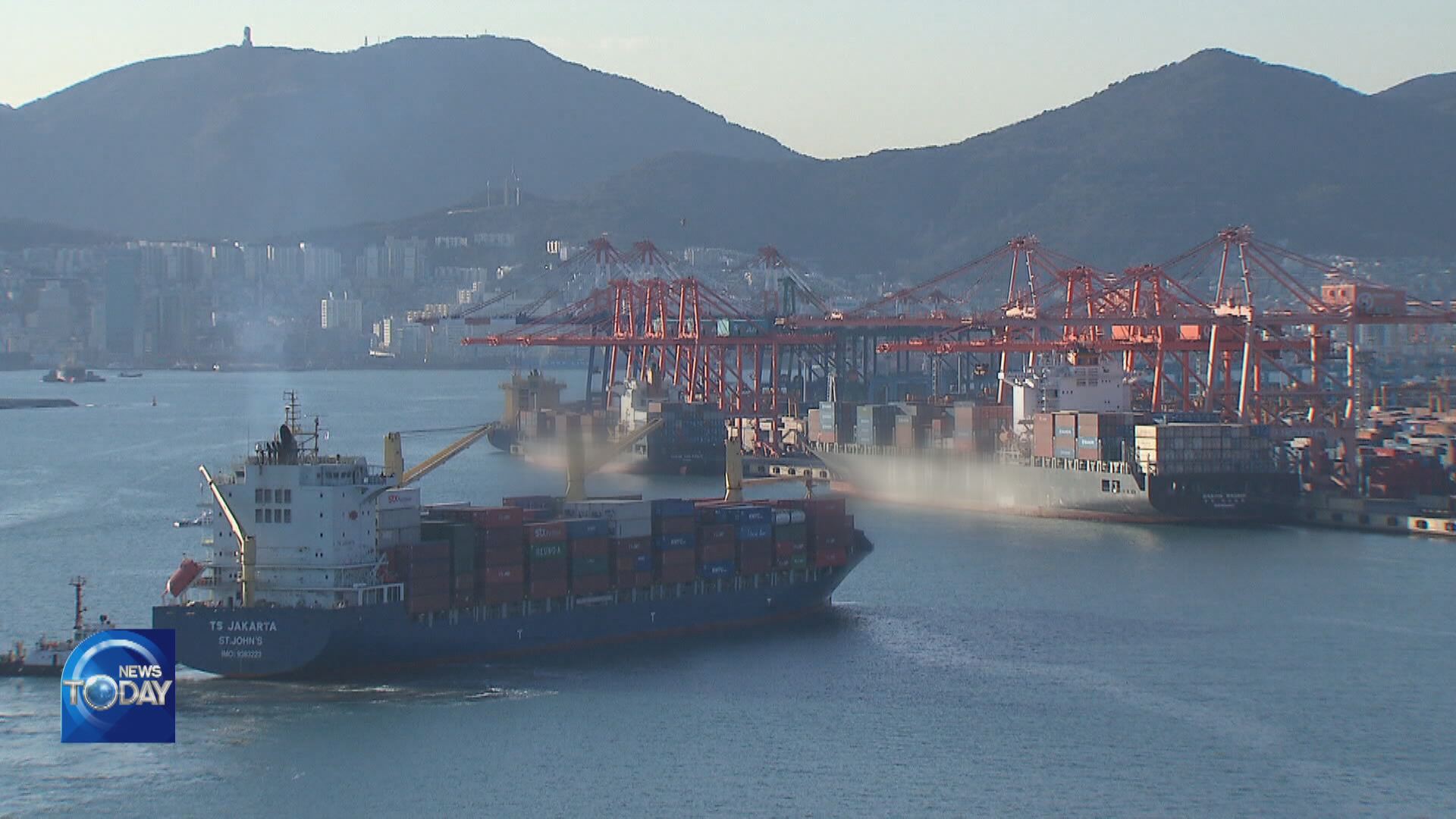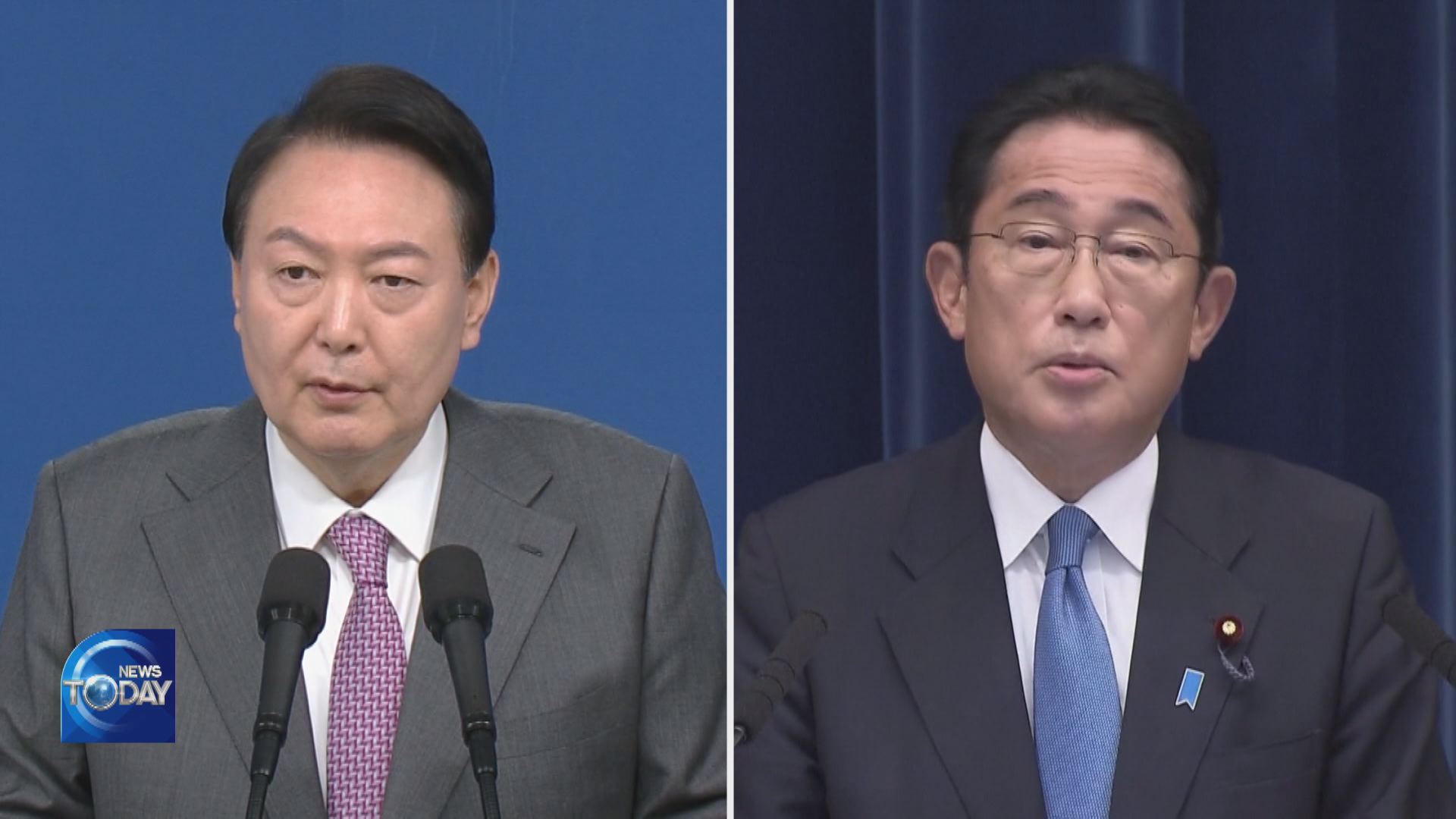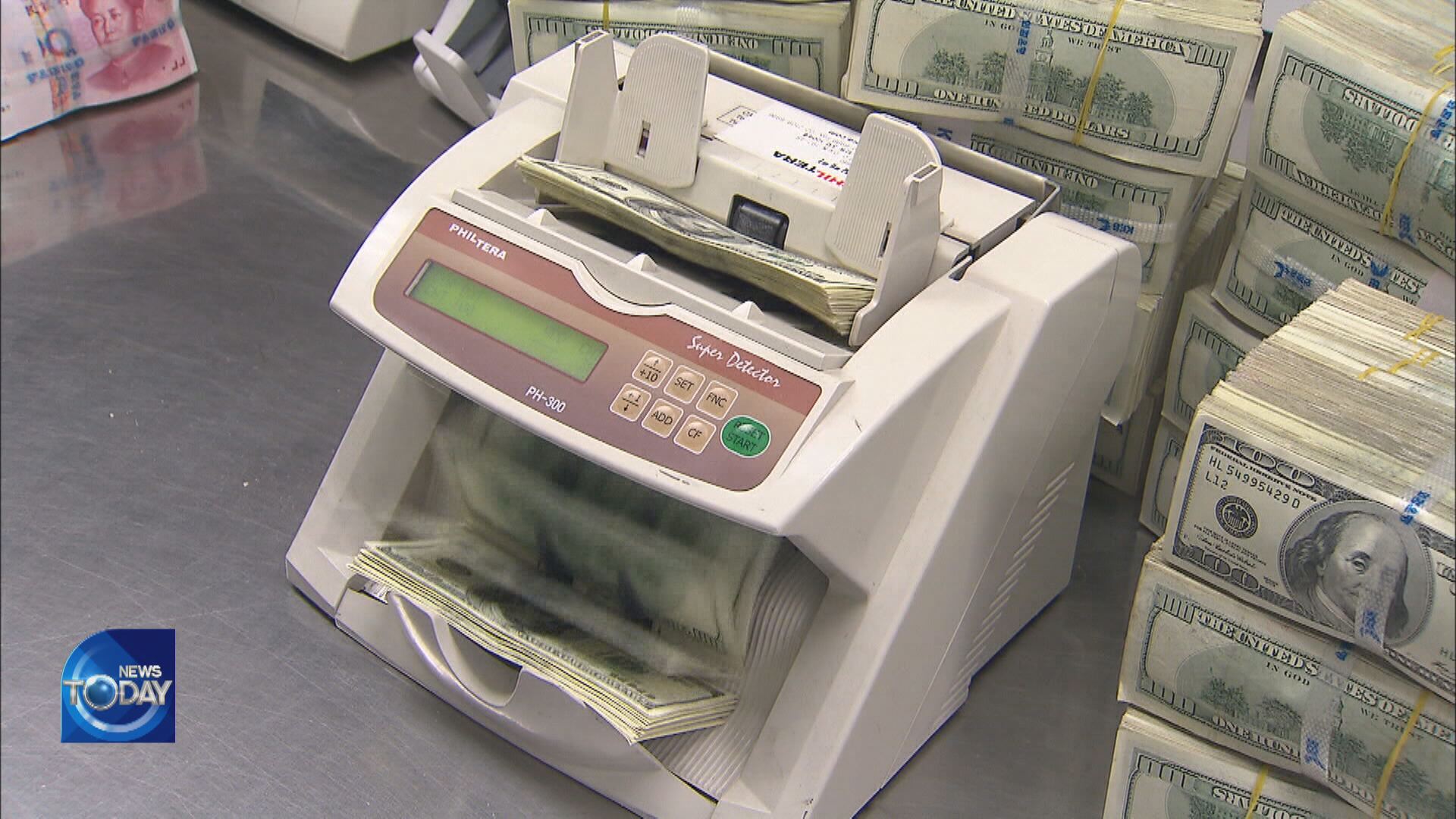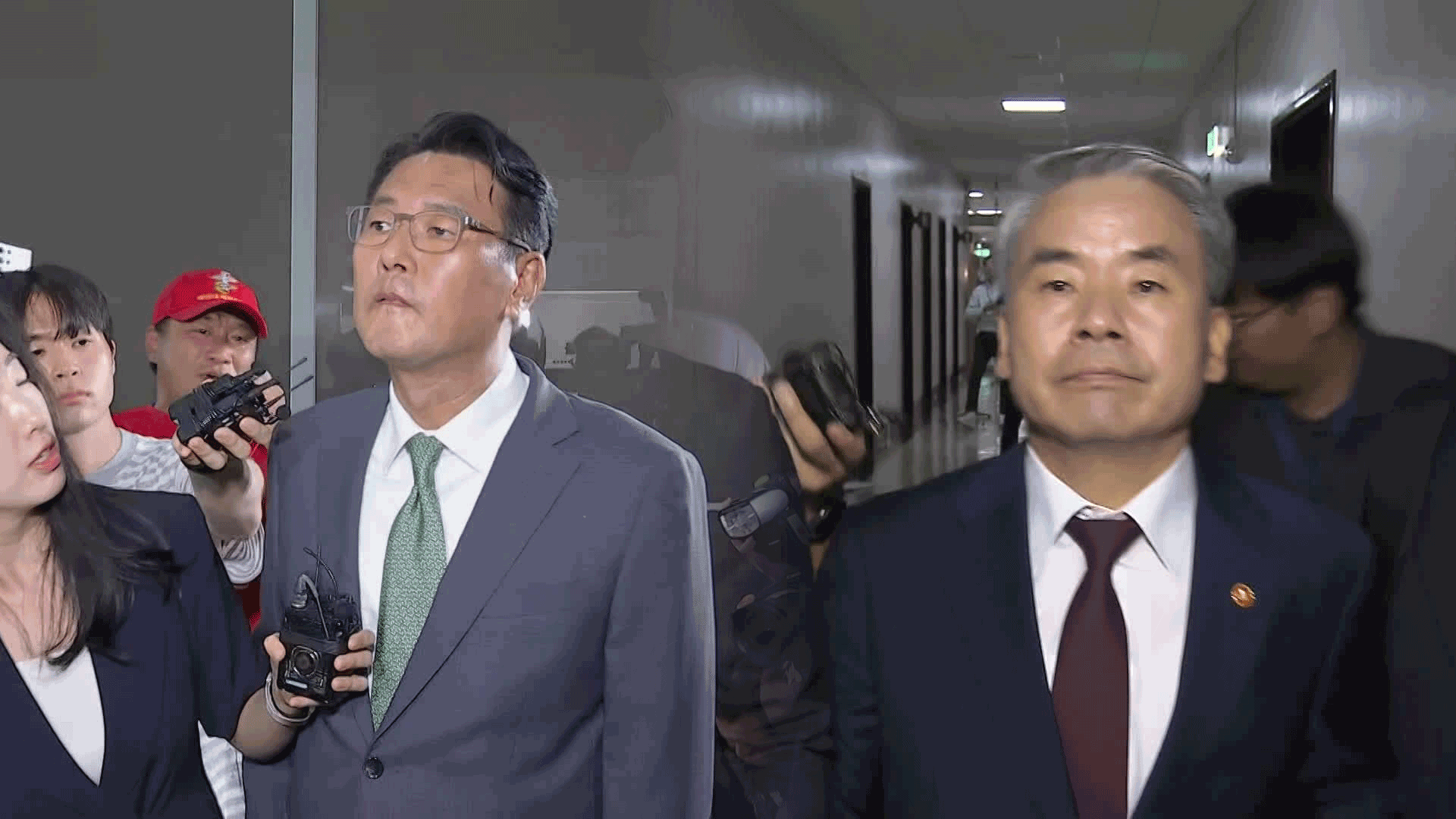S. KOREA POSTS TRADE DEFICIT
입력 2022.09.22 (15:18)
수정 2022.09.22 (16:45)
읽어주기 기능은 크롬기반의
브라우저에서만 사용하실 수 있습니다.
[Anchor Lead]
Korea recorded a trade balance of 4.105 billion dollars in the first 20 days of September, the lowest since April. The primary factor is a surplus in trade with China. Although things seem to be looking up, high import prices and a bleak outlook for the Chinese economy and the semiconductor market will likely prolong the nation's trade deficit.
[Pkg]
Samsung Electronics' shares hit the lowest level in 52 weeks. Semiconductor prices are plunging due to concerns over the global economic recession. Market research companies say the boom is over.
[Soundbite] Lee Ju-wan(POSCO Research Institute) : "Semiconductor prices are falling due to excessive facility investment the past two years. A downward cycle has begun, and will last until next year."
Trade with China also remains challenging. The Chinese economy is struggling. The Asia Development Bank has slashed its 2022 growth outlook by 0.7 percentage points. On top of that, as Chinese companies have stronger market competitiveness now, the trade surplus, which peaked in 2013, has decreased sharply since 2018.
[Soundbite] Kim Hyung-joo(LG Business Research) : "S. Korean businesses are turning to Southeast Asia as production costs in China rise. The Chinese economy is continuously trying to raise its self-sufficiency."
Rising import prices stemming from the soaring international prices of energy and raw materials have also played their part. Korea's trade deficit recorded 24.7 billion dollars in the first eight months of 2022. But the amount of deficit caused by rising import prices reaches 47.2 billion dollars. The Bank of Korea says every time international oil prices go up by ten dollars a barrel, the trade balance deteriorates by 9 billion dollars. This means energy use efficiency is imperative, but there are no appropriate measures at hand.
[Soundbite] Choo Kyung-ho(Deputy Prime Minister for Economy) : "Close monitoring is needed as the risk of semiconductors export restrictions remains high in China and other regions and energy price fluctuations are steep."
With the global economy struggling to overcome high inflation, high interest rates and high currency exchange rates, avoiding a recession will likely be difficult for the Korean economy, which relies heavily on exports.
Korea recorded a trade balance of 4.105 billion dollars in the first 20 days of September, the lowest since April. The primary factor is a surplus in trade with China. Although things seem to be looking up, high import prices and a bleak outlook for the Chinese economy and the semiconductor market will likely prolong the nation's trade deficit.
[Pkg]
Samsung Electronics' shares hit the lowest level in 52 weeks. Semiconductor prices are plunging due to concerns over the global economic recession. Market research companies say the boom is over.
[Soundbite] Lee Ju-wan(POSCO Research Institute) : "Semiconductor prices are falling due to excessive facility investment the past two years. A downward cycle has begun, and will last until next year."
Trade with China also remains challenging. The Chinese economy is struggling. The Asia Development Bank has slashed its 2022 growth outlook by 0.7 percentage points. On top of that, as Chinese companies have stronger market competitiveness now, the trade surplus, which peaked in 2013, has decreased sharply since 2018.
[Soundbite] Kim Hyung-joo(LG Business Research) : "S. Korean businesses are turning to Southeast Asia as production costs in China rise. The Chinese economy is continuously trying to raise its self-sufficiency."
Rising import prices stemming from the soaring international prices of energy and raw materials have also played their part. Korea's trade deficit recorded 24.7 billion dollars in the first eight months of 2022. But the amount of deficit caused by rising import prices reaches 47.2 billion dollars. The Bank of Korea says every time international oil prices go up by ten dollars a barrel, the trade balance deteriorates by 9 billion dollars. This means energy use efficiency is imperative, but there are no appropriate measures at hand.
[Soundbite] Choo Kyung-ho(Deputy Prime Minister for Economy) : "Close monitoring is needed as the risk of semiconductors export restrictions remains high in China and other regions and energy price fluctuations are steep."
With the global economy struggling to overcome high inflation, high interest rates and high currency exchange rates, avoiding a recession will likely be difficult for the Korean economy, which relies heavily on exports.
■ 제보하기
▷ 카카오톡 : 'KBS제보' 검색, 채널 추가
▷ 전화 : 02-781-1234, 4444
▷ 이메일 : kbs1234@kbs.co.kr
▷ 유튜브, 네이버, 카카오에서도 KBS뉴스를 구독해주세요!
- S. KOREA POSTS TRADE DEFICIT
-
- 입력 2022-09-22 15:18:17
- 수정2022-09-22 16:45:03

[Anchor Lead]
Korea recorded a trade balance of 4.105 billion dollars in the first 20 days of September, the lowest since April. The primary factor is a surplus in trade with China. Although things seem to be looking up, high import prices and a bleak outlook for the Chinese economy and the semiconductor market will likely prolong the nation's trade deficit.
[Pkg]
Samsung Electronics' shares hit the lowest level in 52 weeks. Semiconductor prices are plunging due to concerns over the global economic recession. Market research companies say the boom is over.
[Soundbite] Lee Ju-wan(POSCO Research Institute) : "Semiconductor prices are falling due to excessive facility investment the past two years. A downward cycle has begun, and will last until next year."
Trade with China also remains challenging. The Chinese economy is struggling. The Asia Development Bank has slashed its 2022 growth outlook by 0.7 percentage points. On top of that, as Chinese companies have stronger market competitiveness now, the trade surplus, which peaked in 2013, has decreased sharply since 2018.
[Soundbite] Kim Hyung-joo(LG Business Research) : "S. Korean businesses are turning to Southeast Asia as production costs in China rise. The Chinese economy is continuously trying to raise its self-sufficiency."
Rising import prices stemming from the soaring international prices of energy and raw materials have also played their part. Korea's trade deficit recorded 24.7 billion dollars in the first eight months of 2022. But the amount of deficit caused by rising import prices reaches 47.2 billion dollars. The Bank of Korea says every time international oil prices go up by ten dollars a barrel, the trade balance deteriorates by 9 billion dollars. This means energy use efficiency is imperative, but there are no appropriate measures at hand.
[Soundbite] Choo Kyung-ho(Deputy Prime Minister for Economy) : "Close monitoring is needed as the risk of semiconductors export restrictions remains high in China and other regions and energy price fluctuations are steep."
With the global economy struggling to overcome high inflation, high interest rates and high currency exchange rates, avoiding a recession will likely be difficult for the Korean economy, which relies heavily on exports.
Korea recorded a trade balance of 4.105 billion dollars in the first 20 days of September, the lowest since April. The primary factor is a surplus in trade with China. Although things seem to be looking up, high import prices and a bleak outlook for the Chinese economy and the semiconductor market will likely prolong the nation's trade deficit.
[Pkg]
Samsung Electronics' shares hit the lowest level in 52 weeks. Semiconductor prices are plunging due to concerns over the global economic recession. Market research companies say the boom is over.
[Soundbite] Lee Ju-wan(POSCO Research Institute) : "Semiconductor prices are falling due to excessive facility investment the past two years. A downward cycle has begun, and will last until next year."
Trade with China also remains challenging. The Chinese economy is struggling. The Asia Development Bank has slashed its 2022 growth outlook by 0.7 percentage points. On top of that, as Chinese companies have stronger market competitiveness now, the trade surplus, which peaked in 2013, has decreased sharply since 2018.
[Soundbite] Kim Hyung-joo(LG Business Research) : "S. Korean businesses are turning to Southeast Asia as production costs in China rise. The Chinese economy is continuously trying to raise its self-sufficiency."
Rising import prices stemming from the soaring international prices of energy and raw materials have also played their part. Korea's trade deficit recorded 24.7 billion dollars in the first eight months of 2022. But the amount of deficit caused by rising import prices reaches 47.2 billion dollars. The Bank of Korea says every time international oil prices go up by ten dollars a barrel, the trade balance deteriorates by 9 billion dollars. This means energy use efficiency is imperative, but there are no appropriate measures at hand.
[Soundbite] Choo Kyung-ho(Deputy Prime Minister for Economy) : "Close monitoring is needed as the risk of semiconductors export restrictions remains high in China and other regions and energy price fluctuations are steep."
With the global economy struggling to overcome high inflation, high interest rates and high currency exchange rates, avoiding a recession will likely be difficult for the Korean economy, which relies heavily on exports.
이 기사가 좋으셨다면
-
좋아요
0
-
응원해요
0
-
후속 원해요
0

















이 기사에 대한 의견을 남겨주세요.